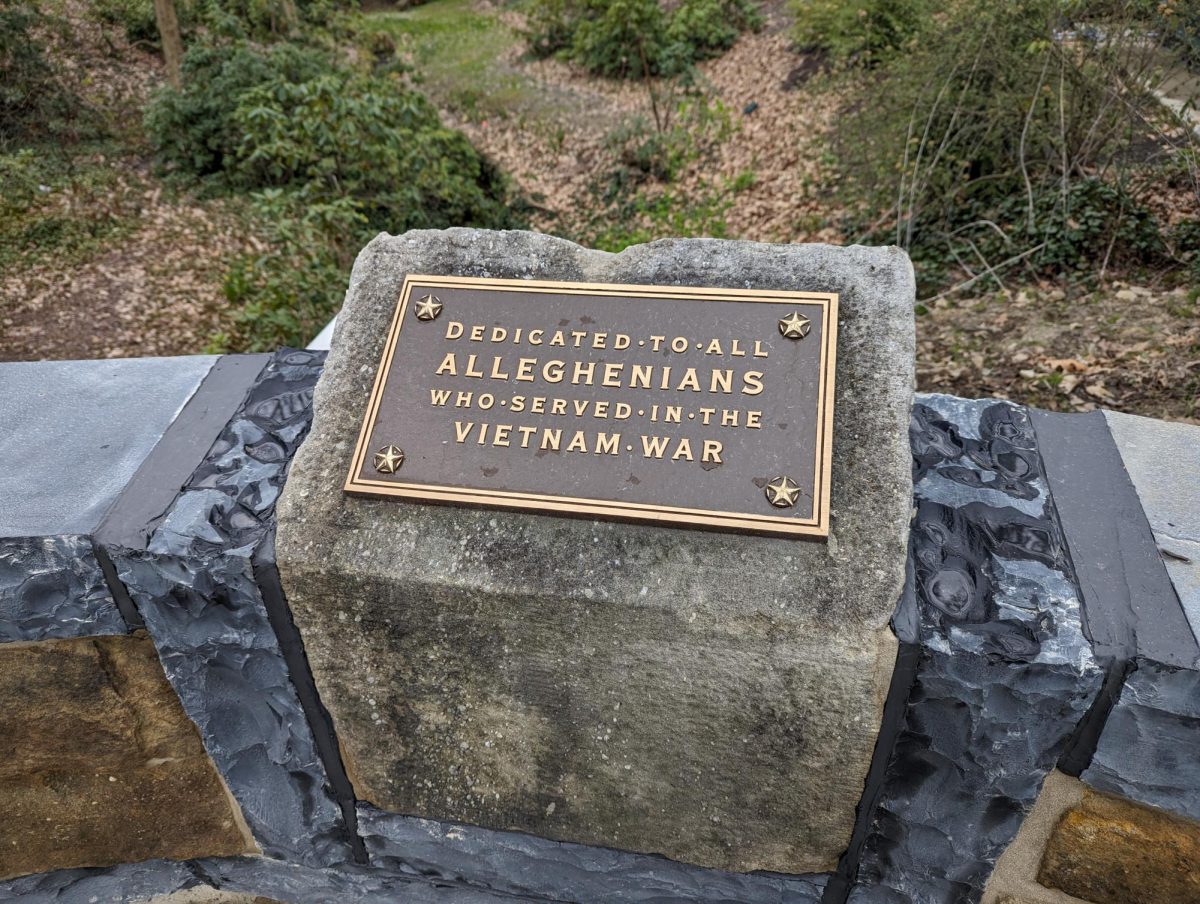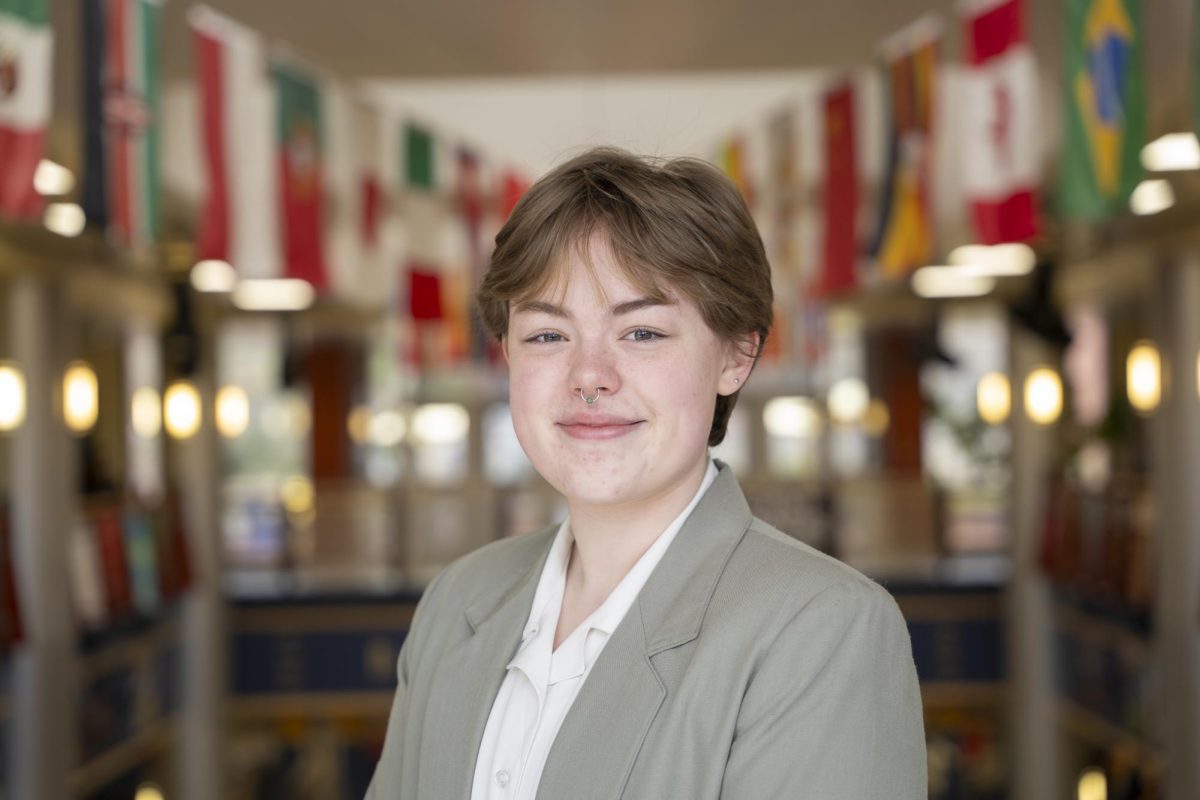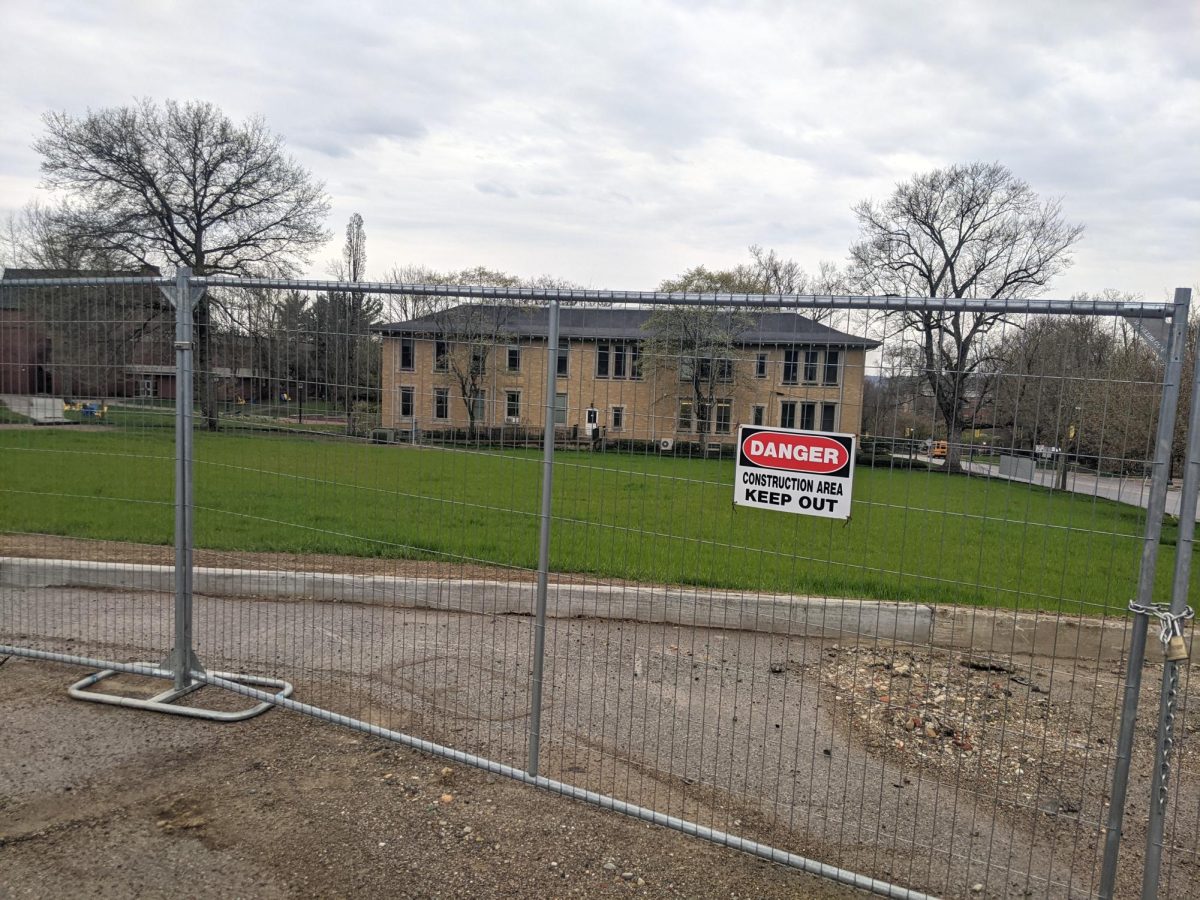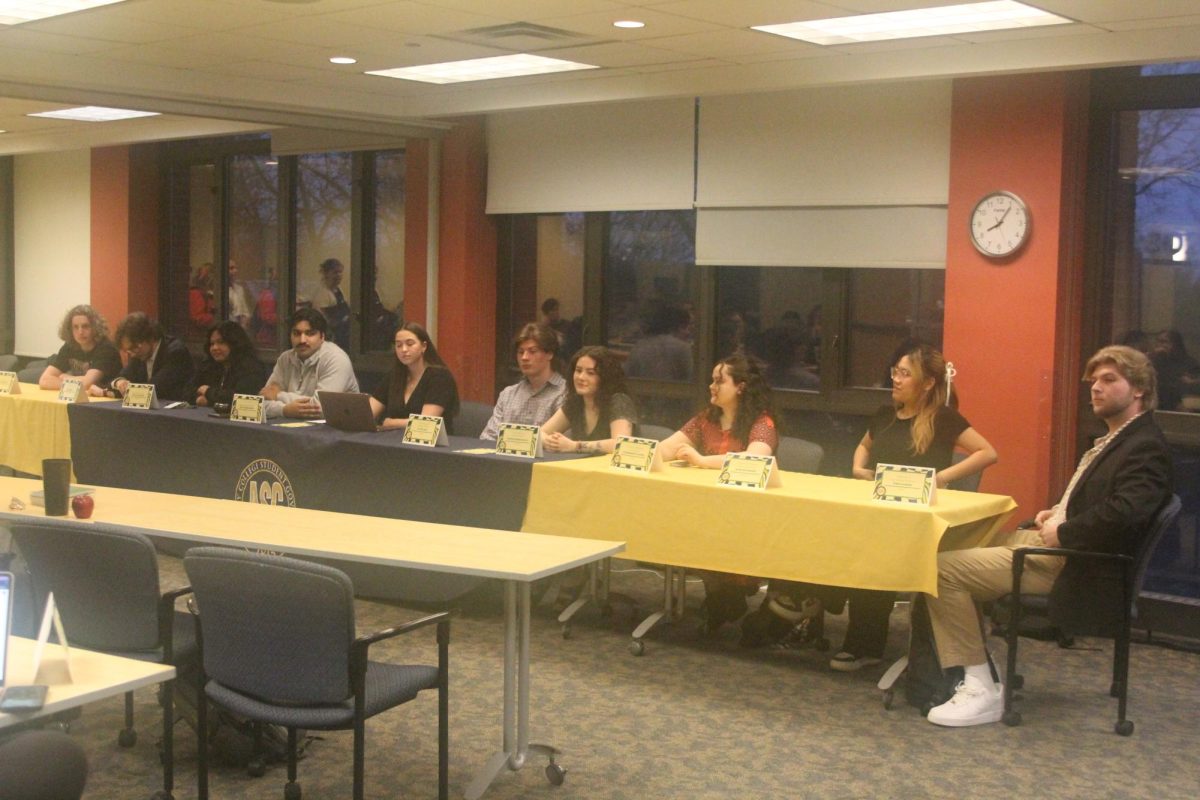By CHELSEA FLEISCHMAN
News Co-Editor
[email protected]
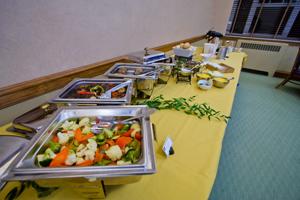
What started with one hungry student ‘borrowing’ lunch meat from a catering event in 2007 has evolved into what is now a regularly participating group of about 20 students called Food Rescue. The group is an ACCEL-endorsed organization that recovers leftover food from various catering events and Brooks Dining Hall for downtown nonprofits organizations.
Nearly twice a day, everyday, after lunch and dinner, two volunteer students collect what pizza, grill, and mainline items remain at Brooks. After packing them up into containers and cooling or freezing them appropriately, the food is then delivered to Women’s Services, CHAPS, and St. James Haven.
Food Rescue coordinator Emma Dosch, ’13, said that the group isn’t currently looking to attain club status.
“Being a club would give us a budget, which would be used quite infrequently as we don’t have regular expenses, and also require a constitution, leadership structure, regular meetings and such,” she said. “These are things that we aren’t quite doing at this point nor feel is totally necessary.”
Dosch stepped into the coordinator role after the original Food Rescue coordinator, Sandra Wayman, graduated in 2010. Wayman said that for her, food rescue started on a personal level.
“Sophomore year I was still living in the dorms and I had a little mini fridge,” Wayman said. “It was me being like, ‘Hey, there’s left overs, I’m just going to take a little bit and make myself a sandwich and keep it for later.’”
Then, Wayman soon realized that there was more food left over from catering events on campus than she could ever possibly eat by herself, and she hated to see it go to waste.
By the end of her junior year, Wayman said she began carrying the leftovers to Women’s Services on her bicycle. When there was still too much food for her to carry herself, she enlisted a few friends. Dosch, a freshman at the time, was one of them.
Though Wayman thought she was being discrete, she had caught the attention of the Parkhurst employees. She didn’t know the name of the man that approached her, nor did he know hers.
“He said, ‘I’ve been looking for you. There’s like ten pounds of luncheon meat that’s about to be thrown out and it just kills me to see that get thrown away. Would you come?’ and I said ‘Sure,’” Wayman said.
From there, Wayman and Parkhurst began collaborating to ensure that the food was properly redistributed.
Wayman, who said she hasn’t had much contact with Dosch since graduating, was thrilled to hear how the group had progressed. If she could have done anything differently, she said she would have asked for others’ help sooner and sought the ACCEL endorsement that the club now has.
Dosch said that should any legal health questions from the non-profits arise regarding the food, an ACCEL endorsement means that ACCEL would support Food Rescue.
Pennsylvania health codes state that after food is served or sold and in the possession of a consumer, food cannot again be offered for human consumption. However, the Bill Emerson Good Samaritan Food Donation Act, signed by President Clinton in 1996, made it possible for corporations to donate food and grocery products “for distribution to needy individuals.” The law limits donors’ liability to instances of gross negligence or intentional misconduct.
Scott Steiner, Director of Operations, said that there is a 15-minute window of opportunity following both catering events and Brooks meals in which Food Rescue can collect the leftovers. They then store the food in a freezer space at Schultz Hall that Parkhurst shares with them, until it is cool enough that it can be frozen or delivered.
“What we do is we pretty much provide [Food Rescue] with the opportunity to take that food,” Steiner said. “Once they take what they would like, that’s when we compost the rest.”
No food is taken from McKinley’s because its style of dining is more of a “cooked-to-order” approach, which minimizes mass leftovers, said Steiner.
Dosch said that approximately 90 percent of their collections are from Brooks. However, if there is less than six servings leftover, they don’t take it.
“If we are at a catering event and there is something less than six servings, then there is a snack for you,” she said. “I appreciate going to catering events when very little food is left. Parkhurst estimated well, and those attending the event may have figured out that they should take the food for themselves, which is totally fine. They paid for it.”



